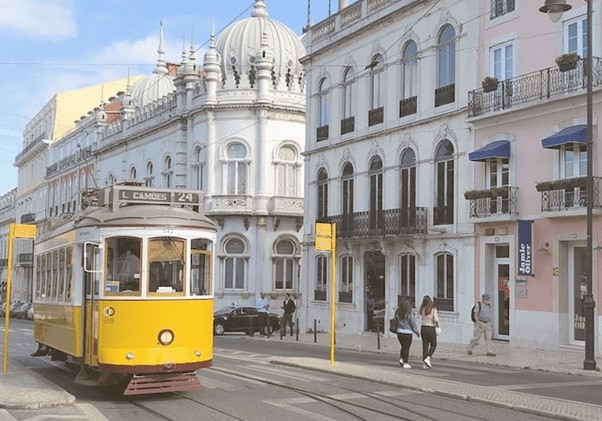Updated: May 15, 2025
With dramatic property price increases in Portugal in recent years and a hike in rental prices, what is the current state of play? Focusing on the Portuguese rental market, are prices really going down?
While the rental prices in some districts do seem to be slowing down, Porto and Funchal included, this is not universal across the country. With demand outpacing supply in recent years, substantially bolstering the supply of rental properties seems to be the key to leveling out rental prices in Portugal.
Portugal's Real Estate Market: The Current Situation

The truth is that, in both markets, rental and house prices in Portugal, on a general level, continued to rise. The key reason for this is the lack of supply, which is completely out-of-sync with demand, which continues to increase. The outcome is that property and rental prices increase. In this context, the European Commission (EC) admitted at the end of 2023 that the Portuguese residential market remains “overvalued”, meaning that the sale price of properties is well above the incomes of those who buy them.
The EC has noted that there could be a correction if the Portuguese economy worsens due to the overvalued market, high interest rates, and rising mortgage payments, amongst other factors, but that a sharp drop in house prices in not likely.
This is because housing supply is limited, interest rates are stabilizing and expected to decrease in 2024 and 2025, and the economy is growing. Additionally, the job market is strong with full employment opportunities, and amongst other factors, these factors make a sharp price correction less likely.
Property prices to stabilize?

Many have noted the continued influx of US nationals given that Portugal has progressive legislation, while instability in the USA, such as uncertainty in how the US elections will pan out. While price corrections may happen in more remote areas, they are unlikely in urban hubs.
This is echoed by a statement from the president of APPII: “If we follow the same trend of high demand versus reduced supply, clearly prices will not tend to fall,” and may even increase or remain high. Several developers and real estate agents also admit that the imbalance between the supply and demand of houses will continue in 2024, as constraints on house construction are expected to persist. As a result, the most likely scenario for this year is a moderate increase in house prices or even stabilization.
Portugal's Rental Market: Price Increases Slowing Down in Some Locations, Increasing in Others

Among the 12 district capitals with representative samples during this period, house rents slowed down in eight cities, including Porto and Funchal.
On the other hand, the cost of renting in Portugal accelerated on a quarterly basis in four cities, namely Lisbon, Braga, Aveiro, and Santarém. Although they are rising at different rates across the entire country, rental properties in Portugal have been increasing, reaching five-year highs at the start of 2024 despite the decrease in tourist accommodation available and hotels for sale in Portugal.
Portugal’s Rental Market Remains Attractive for Investors

Portugal’s real estate market, both to buy and rent property, has demonstrated resilience in the recent past, for example with its performance in light of the COVID-19 pandemic, following which the sector bounced back strongly. This is complemented by strategies by the Portuguese government in recent years, such as the introduction of the Digital Nomad Visa in 2022, which has cemented Portugal as a top location for remote workers. The boom in the tech sector, with businesses and startups setting up shop in Portugal, particularly in Lisbon, Porto, and Braga, has also led to greater demand for long-term rentals.
Rental yields in Portugal remain high, with average rental yields for the Lisbon and Porto Metropolitan Areas standing at 6.7 and 6 percent, respectively, and rental yields in the Algarve averaging at 5.6 percent. While timing is crucial to any successful investment, investors should certainly take note of the real estate market in Portugal right now, as demand continues to surge.